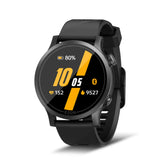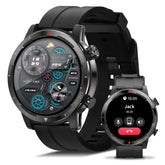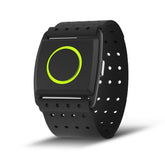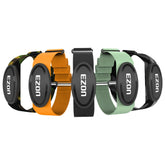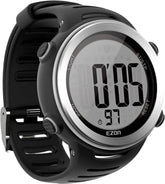Marathon Training for Beginners: Nutrition, Recovery, and Heart Rate Monitoring
Embarking on your first marathon journey? This comprehensive guide equips beginners with science-backed strategies for nutrition, recovery, and heart rate monitoring—the trifecta of successful marathon training. Discover how to fuel your body, optimize rest, and use heart rate data to avoid overtraining, all while building the stamina needed for 26.2 miles.
1. Marathon Nutrition: Fueling the 26.2-Mile Journey
A. Pre-Race Nutrition: Glycogen Loading Done Right
-
3-Day Carb Loading Protocol:
- Consume 8–10g carbs/kg body weight daily to maximize glycogen stores (Journal of Sports Nutrition).
- Sample meal for 70kg runner:
- Breakfast: 2 cups oatmeal + banana (70g carbs)
- Dinner: Whole-wheat pasta + tomato sauce (100g carbs)
-
Race Morning Fueling:
- 3–4 hours before: High-carb, moderate-protein meal (bagel with peanut butter).
- 1 hour before: Quick-digesting carbs (energy gel + banana, 30g carbs).
B. During-Race Fueling Strategy
-
20–30g Carbs Every 30 Minutes:
- Use gels, chews, or sports drinks (60–80 calories/serving).
-
Electrolyte Balance:
- Consume 200–300mg sodium/hour to prevent hyponatremia.
C. Post-Race Recovery Nutrition
-
30-Minute Window:
- 4:1 carbs-to-protein ratio (e.g., chocolate milk: 30g carbs, 8g protein).
-
24-Hour Recovery Plan:
- 5–7g carbs/kg + 1.2–1.7g protein/kg (350–490g carbs, 84–119g protein for 70kg athlete).
2. Recovery Strategies: Rest to Run Stronger
A. Sleep & Recovery Science
-
7–9 Hours Daily:
- Poor sleep reduces leptin (satiety hormone) and increases hunger by 20%.
-
HRV (Heart Rate Variability) Monitoring:
- Use heart rate monitor to measure HRV—drop >10% from baseline signals need for rest.
B. Active Recovery Techniques
-
Post-Run Routine:
- 15-min easy jog (HR <60% MHR) to flush lactate.
- Static stretches for quads, hamstrings, calves.
-
Cross-Training:
- Cycling or swimming at <60% MHR on rest days to maintain fitness without stress.
3. Heart Rate Monitoring: Your Marathon Training Coach
A. Heart Rate Zones for Marathoners
| Zone | % MHR | Training Effect |
|---|---|---|
| 2 | 60–70% | Aerobic base (long runs) |
| 3 | 70–80% | Lactate threshold (tempo runs) |
| 4 | 80–90% | VO2 max (intervals) |
B. Heart Rate Monitor Tools for Beginners
-
Key Features:
- Real-time HR alerts for zone maintenance (e.g., EZON C009Pro vibration cues).
- GPS + HR sync to correlate pace with effort.
-
Top Monitors (Under $100):
Model HR Accuracy Battery Life EZON C009Pro ±1 BPM 6–12 months Polar H10 ±2 BPM 6 months
4. 12-Week Beginner Marathon Training Plan
A. Weekly Structure (10% Mileage Increase Rule)
| Week | Long Run | Interval Training | Recovery Runs |
|---|---|---|---|
| 1–4 | 3–6 miles | 4x400m at Zone 4 | 2–3 easy runs (Zone 2) |
| 5–8 | 8–12 miles | 6x800m at Zone 3 | 2–3 easy runs |
| 9–12 | 14–20 miles | 10K pace intervals | 2–3 easy runs |
B. Training Tips for Beginners
-
Pace Management:
- Long runs at "conversational pace" (can speak in full sentences, Zone 2).
-
Overtraining Prevention:
- If morning HR is 5–10 BPM higher than usual, take a rest day.
5. Common Beginner Mistakes & Solutions
-
Overloading Fiber Pre-Race:
- Solution: Avoid broccoli, beans 24 hours before long runs.
-
Ignoring HR Recovery:
- Solution: After intervals, ensure HR drops to <70% MHR within 2 min.
-
Neglecting Strength Training:
- Solution: Add 2x/week core workouts (planks, squats) to prevent injury.
6. FAQs: Marathon Training for Newcomers
Q: How many days a week should I train?
- 4–5 days/week: 3 runs + 1–2 cross-training sessions. Rest days are non-negotiable.
Q: Can I use a smartwatch instead of a heart rate monitor?
- Basic smartwatches lack precision for zone training. Invest in a heart rate monitor for accurate HR data.
Q: What’s the best post-run recovery food?
- Chocolate milk or a protein shake (20g protein + 40g carbs) within 30 minutes of finishing.
Train Smart, Run Confident: Your Marathon Journey Starts Here
Marathon training is as much about nutrition and recovery as it is about mileage. By fueling strategically, prioritizing rest, and using heart rate monitoring to guide intensity, you’ll build endurance safely and avoid the pitfalls of overtraining.
Ready to tackle 26.2 miles? Lace up, track your heart rate, and trust the process—every run brings you closer to the finish line.
